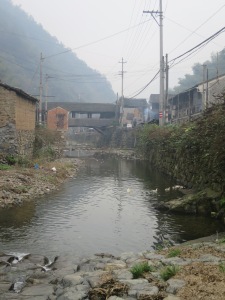A difficulty of learning Chinese is the speed with which I forget it. Like physical fitness, after a fortnight away from daily exercise – or writing and reading characters and talking Mandarin – my knowledge of the language quickly seeps away. We are away for CNY in Australia for three weeks on a trip combining business with pleasure and I felt sure that my Chinese would take many steps backwards.
I needn’t have worried. While I had read quite a lot about the end of the ‘White Australia’ policy and the continent’s embracing of its location in South East Asia and the Pacific rim, I was still surprised by the presence of many Asians and the intent to welcome tourists from China in particular.
Of course we travelled with many Chinese people from Shanghai as it was CNY. This in itself is an interesting phenomenon as it shows the gradual acceptance of travel abroad during the period traditionally reserved for going back to the family village. The Chinese on the plane may have been travelling to Australia purely for pleasure, visiting younger relatives who had emigrated or have been students beginning a semester or longer of study abroad.
Australian airports adopt bilingual signage in English and Mandarin, so I was instantly able to practise reading the airport vocabulary that I had recently been learning. Melbourne airport expects large numbers of Chinese students who come to study at their universities, especially the University of Melbourne. A welcome desk was set up in the terminal. More Chinese to read and to hear spoken.
In Sydney, our first port of call, references to China were everywhere, in addition to the Chinatown area. These were both positive and negative. Posters and banners about CNY celebrations were everywhere. In Sydney this is the year of the sheep, and the Harbour Bridge is wittily stretched between the sheep’s ears.
While we were there and enjoying the luxury of watching TV in English, a story broke about contaminated fruit that was being exported from China to Australia. An all too familiar food scare story coming out of China. The Australian newspaper also had an article about the amount of property being bought by Chinese people in Sydney. Some suburbs are now over 50% Chinese. Property is bought both as an investment by rich Chinese still in China and for residential purposes by Australian Chinese living in Sydney. There was the same ambivalence about this as one reads about foreign investment in say, London.
We had some interesting conversations about the impact of Chinese young people now being educated in Sydney. Apparently, a large percentage of places at top city private schools are taken by Chinese Australians. Those tiger mothers make sure their offspring are crammed and ready to succeed in the entrance exams. Again there were different opinions about this. Some people bemoaned the competition, others believed that such application and will to succeed would ‘save’ Australia’s economy.
Our hotel in Melbourne was adjacent to the city’s famous Chinatown. There it is the year of the goat. We arrived on Chinese New Year’s Eve, and while we rushed to the nearest and best Italian restaurant, we were assured that there is fabulous Chinese food to eat in the city. We walked around and watched local Chinese Australians carrying out traditional lion dances to bless local businesses. The lion stands up (one man on the shoulders of another) and ‘eats’ a cabbage or lettuce hung up by the business owner, and finds a red envelope of money. A long, long string of firecrackers is lit and the business will be prosperous for the whole year.
While Fintan worked the next day at the University of Melbourne, I went to the privately run Chinese Museum in Chinatown, curious to see what would be selected to represent the community. One level commemorated Chinese Australians who had fought in the First War – Australia is in the thick of First War centenary fever, including a TV series about Gallipoli (it doesn’t feature any Chinese).
The top floor told the story of the Chinese in Melbourne; in the 1850s many arrived in the Gold Rush. Most were from Guangdong (Canton). Soon after a sorry tale of discrimination unfolded, and the Chinese population fell dramatically. The White Australia policy adopted from 1901 of course limited immigration.
But all this has now changed, and the museum is run by local volunteers, immensely proud of their heritage and their place in Melbourne society. The whole of the ground floor was occupied by a huge lion which is operated by over 100 people at a CNY procession.
My necessarily superficial impression is that in the cities at least Australia has integrated its Chinese population very successfully. Politically this is interesting in that in China we often hear the democracy ‘wouldn’t work’, as if somehow Chinese people would not be able to understand the idea of voting and accountability. Why is it, I ask myself, the large Chinese community is perfectly able to vote in Australia, where participation in elections is compulsory?
We are now in a small rural ‘city’ of 25,000 people in rural NSW, visiting the delightful university of New England at Armidale. The first cafe we visited in the town had a table full of Chinese – all speaking Mandarin. I don’t think I will be forgetting the language just yet.


